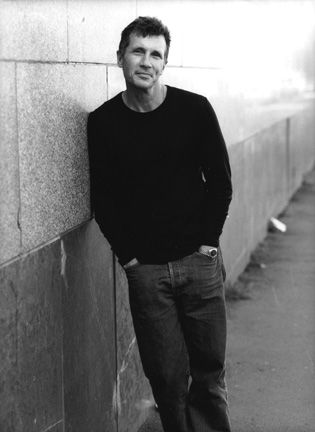Counting Down the Hours
Michael Cunninghams new novel is a victim of the authors own success

Specimen Days
By Michael Cunningham
Farrar, Straus and Giroux, $24.00
Admiration. Envy. Such is the common response to writers who have achieved great, particularly sudden, success. But just as often a measure of pity is due. Success is lovely, of course, especially if preceded by years of unrecognized toil. But then comes the assault of fame, so injurious to an occupation arising from a carefully cultivated privacy. When the writer has reached the pinnacle of literary success—which as we know is not literary at all but cinematic, i.e., a movie adaptation—additional pity is necessary. Once alone and focused, with only his work (and perhaps the rent) to worry about, the timid novelist is suddenly propelled into a huge room filled with loud voices and toothy smiles. Out in the open, fair game for any idiot with a quibble, his very name blown to the four corners of the world—how cozy his earlier anonymity must seem! If nothing else he is to be pitied simply because he has become, in his successfulness, utterly unpitiable.
After one or more terrible public relations errors the writer learns to keep his mouth shut, to build high walls around himself. A letter from David Foster Wallace to Don DeLillo* comes to mind, in which Wallace recalls his first interview. The reporter, a kindly fellow from the Washington Post, interrupted Wallace in order to explain the sort of things you probably don’t want to mention to the press. Your drug history, for instance. He then took Wallace on a tour of the author’s own house, pointing out which personal items should be removed and which pictures taken down before other, less sympathetic reporters showed up. Still, even once all the pictures are taken down, the writer must eventually take up his pen and begin again. But how can he, with his prior achievement looming larger than Macbeth? These days the anxiety of influence pertains as much to a writer’s own work as it does to that of others.
And so it is with a measure of sympathy that one approaches the new book by Michael Cunningham, Specimen Days. Published a full six years after his hugely successful novel The Hours, it bears every sign of a writer anxious to steer clear of his own influence. No single vision shapes this book. Instead, a kind of spastic energy divides it into three novellas of roughly 90 pages each. All are set primarily in New York, but the times are different—19th century, 20th century, and some unspecified point in the future. What’s more, each story draws on a different genre—ghost story, police thriller, and science fiction. Despite these differences, the stories share some elements in common, not least of which are the three characters who, in some form or another, appear in each: an aggrieved woman named Catherine, a man named Simon (her love interest), and a precocious boy with a misshapen head, who in some fashion comes between them.
The intended effect of this Neapolitan structure is anyone’s guess. …
Visit www.ruminator.com to read this article in full!